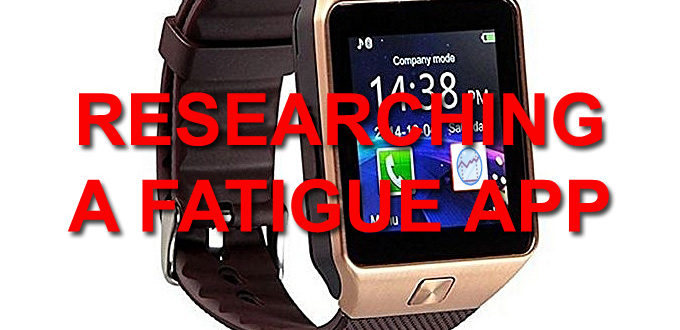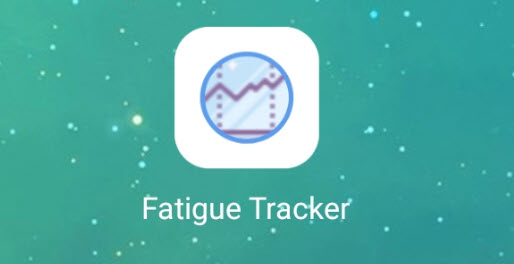 Fatigue is often experienced after acquired brain injury and people often try to manage via fatigue strategies such as planning and pacing. In order to use such strategies, the individual needs to build a picture of how their fatigue affects them in daily life. Usually, a daily diary sheet of sleep, rest, activity and fatigue is completed. Apps on smart phones are able to collect “in the moment” information about people’s fatigue experiences and to collect information about sleep and rest patterns. This information could help the person with brain injury, their carers and their therapists to learn about their fatigue more effectively, and identify triggers and patterns of fatigue.
Fatigue is often experienced after acquired brain injury and people often try to manage via fatigue strategies such as planning and pacing. In order to use such strategies, the individual needs to build a picture of how their fatigue affects them in daily life. Usually, a daily diary sheet of sleep, rest, activity and fatigue is completed. Apps on smart phones are able to collect “in the moment” information about people’s fatigue experiences and to collect information about sleep and rest patterns. This information could help the person with brain injury, their carers and their therapists to learn about their fatigue more effectively, and identify triggers and patterns of fatigue.
 A student researcher conducting his doctorate at Oxford Brookes University has developed an early prototype of an app, based on interviews with people with brain injury. This app works on android mobile phones and asks the user (who has experienced a stroke or other brain injury) to rate their fatigue, identify what they were doing at the time… and to complete a reaction time test.
A student researcher conducting his doctorate at Oxford Brookes University has developed an early prototype of an app, based on interviews with people with brain injury. This app works on android mobile phones and asks the user (who has experienced a stroke or other brain injury) to rate their fatigue, identify what they were doing at the time… and to complete a reaction time test.
The app collects information about the phone screen turning on and off as this relates to sleep patterns. The aim of this study is to investigate the usability of the mobile phone app to assess fatigue after acquired brain injury. This involves finding out users views about the design of the app, ease of use and how the app works in everyday life.
Here is what you would do:
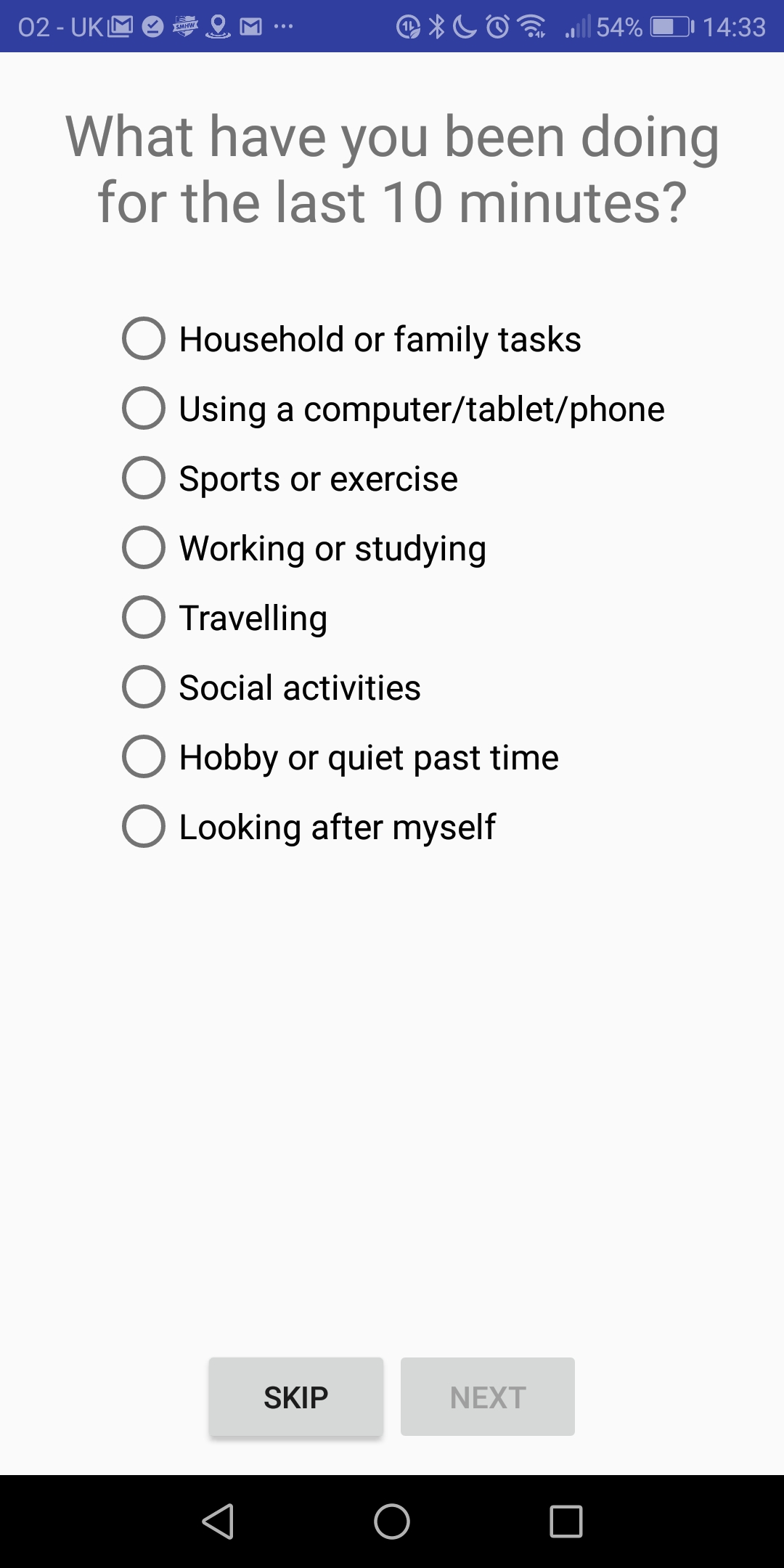
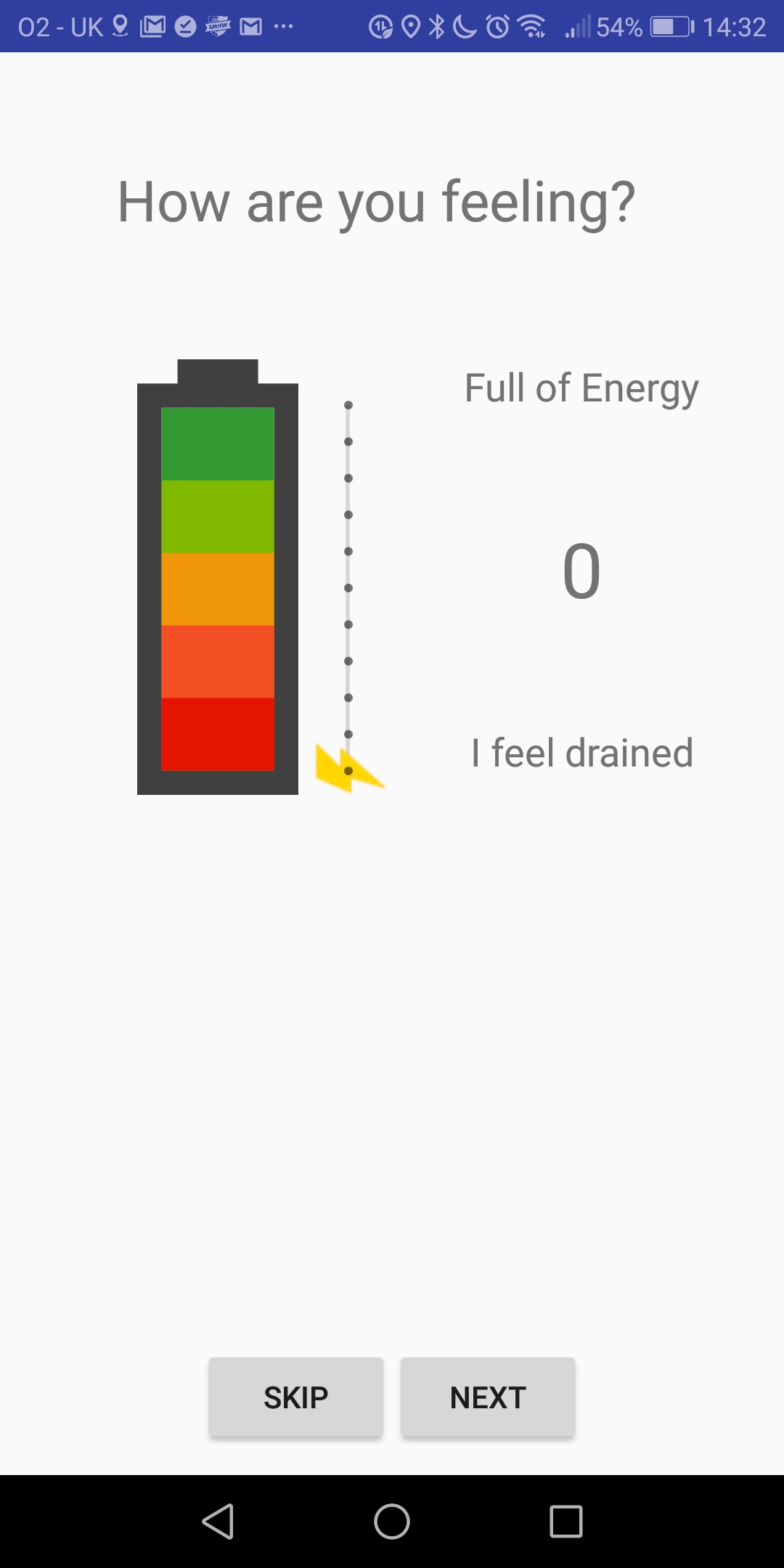
Stage 1. You would meet with the researcher at Oxford Brookes University for up to 45 minutes, to collect the app and learn to use it. The app would be installed on your phone but there is an option to use a phone purchased for the study. You would be loaned an activity monitor and the researcher would explain how to use it. You would complete a short questionnaire which involves answering 3 questions about you and your phone use.
Stage 2. You would respond to the app prompts on the mobile phone over the next 6 days. The phone app would ask you to:
- rate your energy levels
- answer a question about what you are doing when the phone app alerted you
- complete the reaction time test.
The phone will prompt between 6 and 8 times a day. Responding to each prompt will take up to 2 minutes. You can ignore the prompt if you wish to. The app will not alert you between the hours of 8pm and 10 am.
Stage 3. After 6 days of using the app, you would be asked to meet with the researcher for 45 minutes. This involves complete a short questionnaire about the app. The research will also interview you to find out about your experiences of using the app. This may take place at Oxford Brookes, at your home or on skype (video call). The researcher will remove the app from your phone as needed. You will return any loaned equipment.
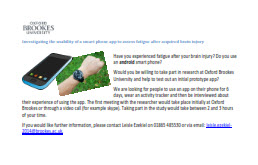 The University thanks you in advance for your consideration: the student hopes that outcomes from this study will contribute towards the development of a usable app for assessing people’s experience of fatigue after brain injury. Such an app may then support more effective interventions for fatigue after brain injury.
The University thanks you in advance for your consideration: the student hopes that outcomes from this study will contribute towards the development of a usable app for assessing people’s experience of fatigue after brain injury. Such an app may then support more effective interventions for fatigue after brain injury.
Click the colour thumbnail advert to download study design, confidentiality details and click link here for full study design information sheet
Contact for Further Information
Leisle Ezekiel, PhD Student, Centre for Movement, Occupation and Rehabilitation Research (MOReS), Headington Campus, Oxford OX3 0BP
eisle.ezekiel-2014@brookes.ac.uk
Telephone: 01865 485530
or Dr Johnny Collet, Clinical Research Fellow, Centre for Movement, Occupation and Rehabilitation Research (MOReS), Headington Campus, Oxford OX3 0BP
Telephone:01865 483630


